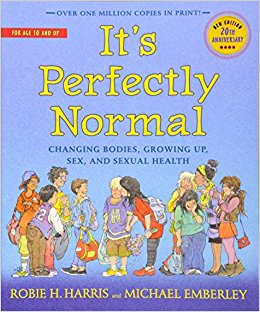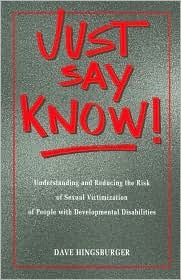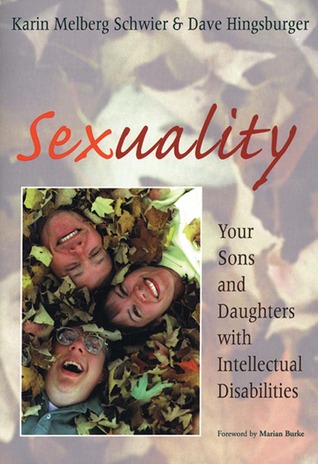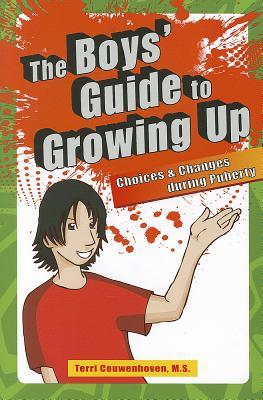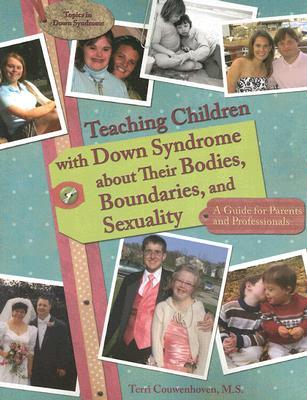Disability and Sexuality
This video on disability and sexuality states that people with disabilities have the same sexual and romantic feelings as anyone else, including a range of sexual orientations. It also reinforces the idea that people with disabilities want the same healthy relationships as anyone else, and they often have similar questions about relationships and their bodies. The video also goes over issues that people with disabilities are more likely to face, like overprotective parents, friends misunderstanding their disability, and trouble expressing feelings and consent verbally. [AMZ-079]
Youth
All people are sexual beings, no matter what their bodies can or cannot do physically or what type of support they may need from time to time or all of the time. It’s important for young people living with disabilities to learn about sexuality. They have the same hormones and sexual needs and desires as other people, and they can have different sexual orientations (heterosexual, bisexual, gay, asexual, etc.) and gender identities (transgender, cisgender, gender nonconforming, etc.). Young people with disabilities want the same thing everyone else wants in a relationship—respect, consent, communication and fun, which is why people regardless of their abilities need to learn about expressing romantic interest in a partner, healthy relationships, dealing with rejection and sexual health.
If you are a young person with a disability, sex education can help you learn about communicating interest in a partner and healthy relationships as well as any specific concerns about what you can or cannot do in sexual situations. Talk to a parent, guardian, health care provider or other trusted adult about how you can get the sex education you need.
FAQs
It can definitely be confusing to know when you can and can’t kiss someone you like. The only way to know for sure if you can kiss your partner or engage in other sexual behaviors with them is to ask them each and every time. This is called getting their consent. It is very common to think that your partner may be into kissing or another sexual behavior by the way they are acting, but just because someone is acting a certain way, it doesn’t necessarily mean they want to engage in a behavior.
Even though rejection can be hurtful, it’s important to remember that there is nothing wrong with you. So, don’t think that you need to change any aspect of your looks, personality or values. You are perfect just the way you are!
It’s not right that this happened to you, and it is not your fault. No one should touch you, or force you to touch them, in a way that is not okay, whether you know this person or not or if this person is an adult or older kid or even someone your age. Don’t keep this a secret. Find someone you trust, like a parent, family member, teacher, coach, a friend’s parent or neighbor, and tell them what happened. There are people out there who can help. By law, most adult professionals (like teachers, coaches and doctors) are required to report this information to the police, so they can help to protect you and try to prevent the crime from happening again. You may be worried about getting the person who touched you or made you touch them in trouble, but remember that you have done nothing wrong and deserve to be safe. The best way to prevent this from happening again or to someone else is to talk to a trusted adult. You could talk face to face or on the phone. You could also send a text, email or letter. You could even make a drawing, if that’s easier. The important thing is to tell someone. Keep telling until you get help.
Handouts
Parents
All people are sexual beings, regardless of their abilities and what type of support they may need from time to time or all of the time. It’s important for young people living with disabilities to learn about sexuality. Parents and guardians may try to protect young people with a disability from injury or harm by keeping information about sexuality from them or shielding them from dating or being in romantic or sexual relationships. Parent’s and guardian’s fears are not unfounded as young people living with disabilities are at greater risk of sexual abuse, assault and exploitation. (People with intellectual disabilities are seven times more likely to experience sexual assault than people without disabilities.) But parents and guardians do young people living with disabilities a disservice when they don’t educate them about privacy, what is appropriate, setting boundaries, healthy relationships, sexual assault, consent and how to be safe. Educating young people with disabilities about healthy sexuality supports them in establishing safe, healthy and developmentally appropriate relationships; identifying sexual assault; and communicating if someone has crossed a boundary with them.
Young people with disabilities have the same hormones and sexual needs and desires as other people, and they can have different sexual orientations (heterosexual, bisexual, gay, etc.) and gender identities (transgender, cisgender, gender nonconforming, etc.). Young people living with disabilities want the same thing everyone else wants in a relationship—respect, consent, communication and fun, which is why people regardless of their abilities need to learn about expressing romantic interest in a partner, healthy relationships, dealing with rejection and sexual health.
CONVERSATION STARTERS
If you have a child with a disability, it’s essential that you have conversations about topics like puberty, relationships and boundaries, so your child knows that they can come to you with questions. The easiest way to start these conversations is to talk about issues as they come up in everyday life, like while watching TV together.
Below are some ways to start these conversations:
Have dinner together and talk about what is going on in your tween’s life. When they mention friends or classmates that have romantic partners, you can then use this time to talk about healthy relationship qualities and behaviors and what they would expect or want in a relationship.
When a news stories about sexual assault comes on, ask your child if they have heard about this topic before and how it made them feel. You can then reinforce with your child that no one should touch them in a way that makes them uncomfortable and they should not touch other people in a way that would make them uncomfortable. Remind your child that they can come to you if they have questions about this or if something happens that makes them feel uncomfortable.
When you want to hug or kiss your child, getting your child’s permission first is a great way to demonstrate consent. If this is not something you have done in the past, you can explain why you are asking for their consent and begin the discussion about why it is important to gain consent—especially in sexual situations.
Resources
Handouts
Educators
All people are sexual beings, regardless of their abilities and what type of support they may need from time to time or all of the time. It’s important for young people with disabilities to learn about sexuality. Parents and guardians may try to protect disabled young people from injury or harm by keeping information about sexuality from them or shielding them from dating or being in romantic or sexual relationships. Parent’s and guardian’s fears are not unfounded as young people living with disabilities are at greater risk of sexual abuse, assault and exploitation. (People with intellectual disabilities are seven times more likely to experience sexual assault than people without disabilities.) But we do young people living with disabilities a disservice when we don’t educate them about privacy, what is appropriate, setting boundaries, healthy relationships, sexual assault, consent and how to be safe. Educating young people with disabilities about healthy sexuality helps them establish safe, healthy and developmentally appropriate relationships; identify sexual assault; and communicate if someone has crossed a boundary with them.
Young people with disabilities have the same hormones and sexual needs and desires as other people, and they can have different sexual orientations (heterosexual, bisexual, gay, etc.) and gender identities (transgender, cisgender, gender nonconforming, etc.). Young people living with disabilities want the same thing everyone else wants in a relationship—respect, consent, communication and fun, which is why people regardless of their abilities need to learn about expressing romantic interest in a partner, healthy relationships, dealing with rejection and sexual health.
National Sex Education Standards
Demonstrate ways to treat all people with dignity and respect (e.g., race, ethnicity, socio-economic status, differing abilities, immigration status, family configuration)
Identify factors (e.g., body image, self-esteem, alcohol and other substances) that can affect the ability to give or perceive consent to sexual activity
Handouts
Resources
Discussion Questions
- What are some things that all people want in a relationship regardless of their ability?
- What are some challenges a person with a disability may be more likely to face?
- What are some ways a person with a disability could overcome those challenges?
- Why would it be important for people—regardless of their ability—to learn about sex and sexual health?
